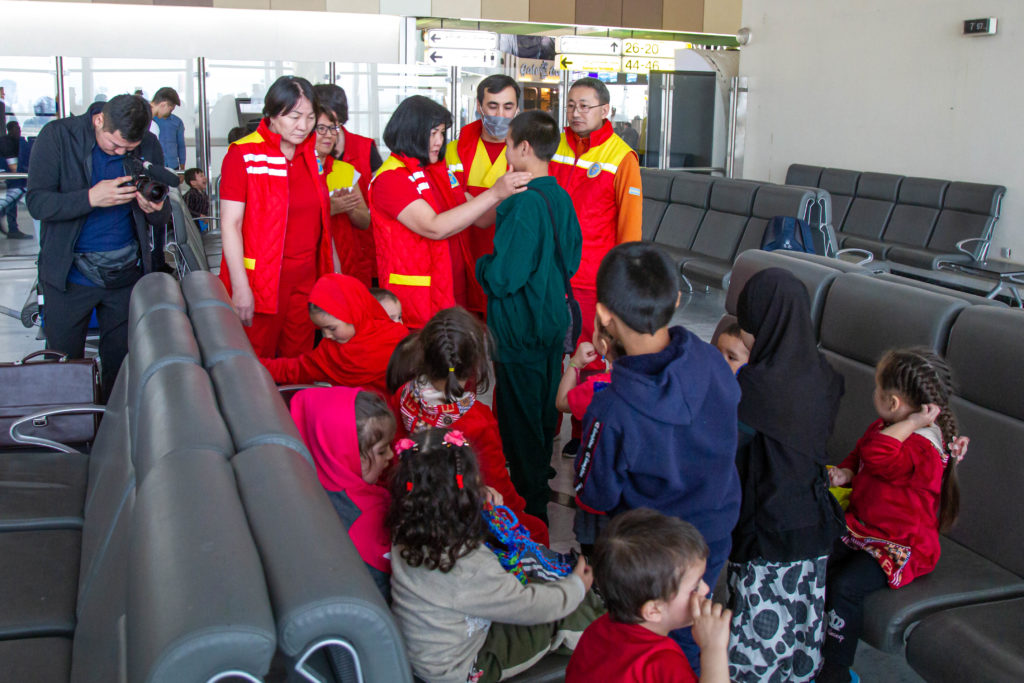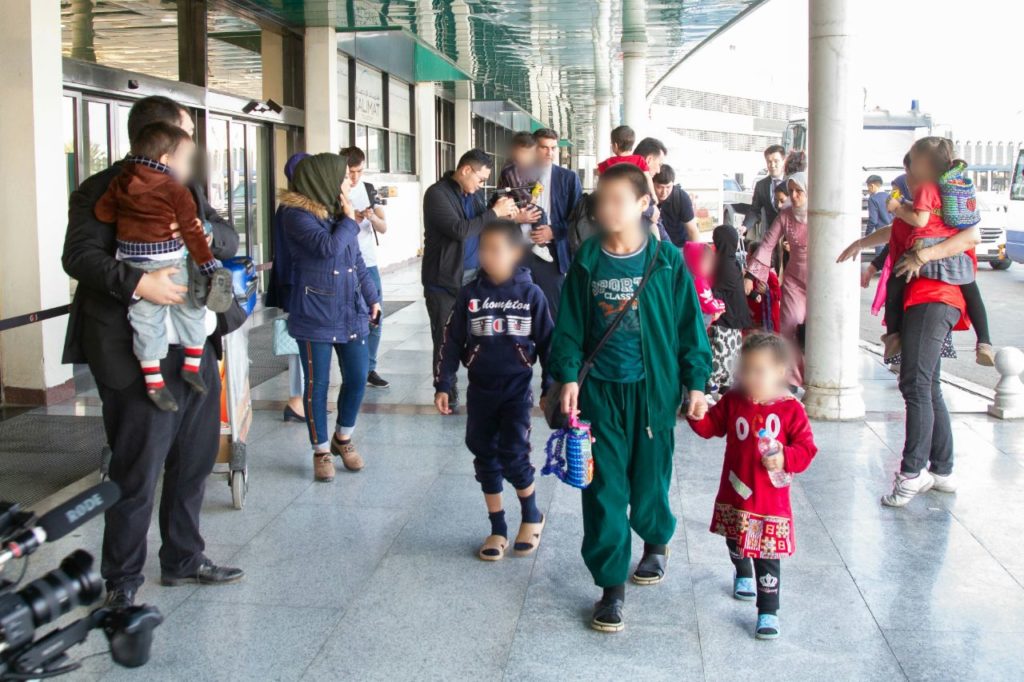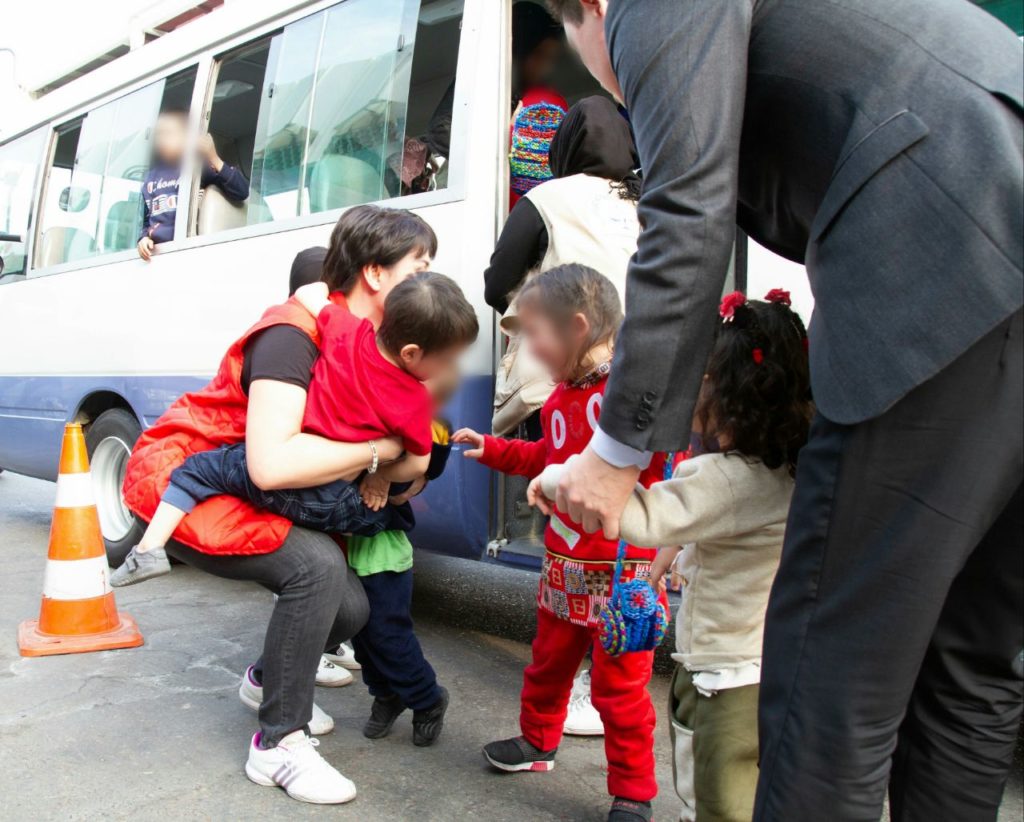BAGHDAD – Kazakhstan returned 14 children from Iraq Nov. 27 after a nearly nine-month-long effort by the Kazakh government with the support of Iraqi officials. The mission, which included representatives of the Kazakh Foreign Ministry, doctors, social workers and the media, travelled to Baghdad to pick up the youngsters on a chartered flight.
The children are aged from two to thirteen. Some were school age when their parents took them to the alleged Islamic State caliphate in Iraq and Syria, while most were born there.
The kids have witnessed the horrors of war and conflict after spending almost two years in the Rusafa prison in Baghdad with their mothers. The women are serving life sentences, which means 25 years in Iraq, for their involvement in the terrorist activity. Six Kazakh women are incarcerated.
The children’s fathers have been killed. One youngster lost both parents and was taken from an orphanage.
The process to return the children started in March, said Foreign Ministry Ambassador at Large Stanislav Vassilenko, when the government learned its citizens were in the Iraqi prison.
“We started negotiations with the Iraqi authorities. This was a long negotiation process because we all had a big task to make sure that they are actually Kazakh citizens. We conducted DNA tests to find relatives here in Kazakhstan,” he said in an interview for this story, on a plane on the flight to Baghdad.
The children hail from different regions of the country and their relatives greeted them at the capital airport. They will spend at least one month in a rehabilitation centre in the city, where they will receive appropriate care and support, including from specialised psychologists, to help them recover from the psychological and physical trauma.
Kazakhstan is also in negotiations with Iraqi authorities to extradite the six women from the prison. The lack of an extradition agreement with Iraq, however, has inhibited the process.
“Again, this process is long, but I hope it will be successful. I would like to say that Iraq also does not have such an extradition treaty with Russia, which evacuated a sufficiently big number of its children, but the Iraqi authorities do not give women away. They did not give women back to Russia, Uzbekistan, Tajikistan or Kazakhstan. We will carry on these long-running negotiations,” explained Vassilenko.
The humanitarian mission is part of the nation’s efforts to return its citizens from territories formerly controlled by terrorists. It follows the four stages of the Jusan (Bitter Wormwood) operation conducted from January through June that returned nearly 600 citizens, approximately 400 of whom were children, from Syria.
“Most of those kids who we brought back from Syria went to school or kindergarten. Their mothers were employed. The majority of the 150 women that we took back returned to the secular way of life and rejected the radical ideology. We have good examples of the women that started working at rehabilitation centres and have convinced the remaining women to come back to their families. There are still some problems with some women. Psychologists and theologists are working with them, convincing them that it is a pseudo state,” the diplomat added referring to DAESH.
The trial process is ongoing in relation to the men who have been charged with terrorist activity involvement and returned to Kazakhstan from Syria.
It was not only a “right action for Kazakhstan to return its citizens, but also very timely,” said Advisor to the President of Kazakhstan Erlan Karin who also personally participated in the evacuation of the children.
The situation in the Middle East, he noted, has drastically changed this year, including the escalation of the conflict in northern Syria which significantly complicates efforts by other countries to extricate their citizens from there.
“The government takes its role with responsibility despite the circumstances [under which] the citizens ended up there. Kazakhstan is probably the only country that in such scale and stages consequently undertook these measures to return citizens both from Syria and Iraq. Other states also do it, but on a smaller scale,” he told The Astana Times.
“Our diplomats conducted huge work, both in Jusan and in this operation. They did the bulk of the work, because they had to clear up different issues with our foreign partners in difficult political conditions. This was a not so visible and not so noticeable amount of work,” he added.
The Kazakh government used different channels to find children trapped in conflict areas and stranded in camps.
“The information across all channels is being accumulated. Relatives contact parents themselves through different ways to try to contact and seek help in their repatriation or that of their kids,” said Karin.
A tangle of concerns needed to be addressed to conduct such an operation, he noted.
“It took a long time. First of all, many may think that the issue is just in sending the plane and bringing the kids, but actually there is a need to address legal issues. Children who are being returned from Iraq, their parents are sentenced and many of them lack documents. The legal status of minors is unclear. Therefore, our diplomats and other state bodies needed to resolve all legal issues and prepare the documents,” he added.



